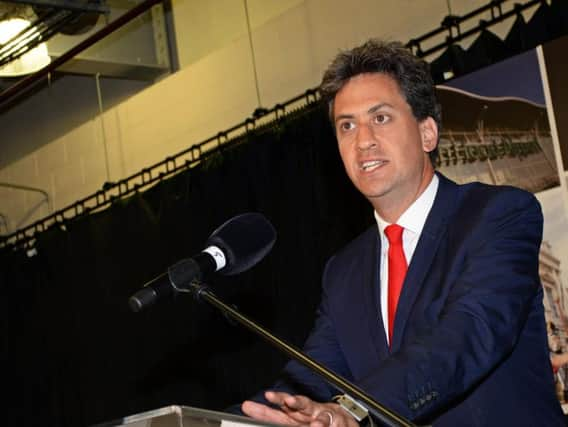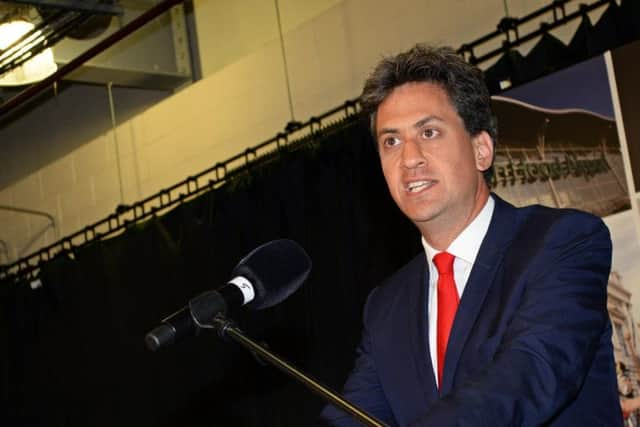Compulsory ID at polling booths is 'voter suppression', says former Labour leader Ed Miliband


The Queen's Speech included plans to tighten rules around voting, with voters needing to show an "approved form of photographic ID" when turning up to polling stations.
But former Labour leader Ed Miliband, MP for Doncaster North, said the Prime Minister had not offered "any evidence" that there was an issue with the integrity of voting in the UK.
Advertisement
Hide AdAdvertisement
Hide AdA passport or a driver's licence featuring a photograph will need to be produced in order to have a say at the next election under the plans being proposed by the Government.


Ministers said those who do not hold such identification documents will be able to apply for free for a local electoral identity document to avoid losing their vote.
The fine print in the draft Bill also places extra burdens on postal voters, with fresh requirements to reapply every three years to vote by post.
Under current rules, those on the electoral register simply turn up at their local polling station to have their say.
Advertisement
Hide AdAdvertisement
Hide AdVoters are sent polling cards informing them of the election date and where to go to vote but the card does not have to be handed over in exchange for a ballot paper.
Mr Miliband tweeted: "Photo ID to vote without any evidence of a problem such an obvious US voter suppression move.
"Plus, in small print of briefing document making people re-apply for postal votes every three years... more bureaucracy to disenfranchise more people, particularly older voters."
Labour leader Jeremy Corbyn said the policy was a "blatant attempt by the Tories to rig the result" of the next election, saying that "millions of people" in the UK did "not have access to any photo ID".
Advertisement
Hide AdAdvertisement
Hide AdThe Electoral Commission said it had found the UK's voting system was "vulnerable to fraud" in recent studies.
In voter ID pilot schemes run by the commission in 2018 and 2019, less than one per cent of eligible voters turned up without their IDs and failed to return, according to a paper published on the findings.
One of the trials was in Craven in North Yorkshire, where initial figures showed that a total of 48 voters out of 7,001 across the district were
turned away at the polling station and did not return – just 0.69 per cent of those who cast
their vote at a polling station.
Advertisement
Hide AdAdvertisement
Hide AdA commission spokesman said: "As we have highlighted, the Government should ensure that any ID requirements set out in the Bill allow for alternatives to photo ID, for those who do not already have this.
"This will ensure voting at polling stations remains accessible. We await further detail of the Government's proposed Bill."
But the Electoral Reform Society (ERS) said its research indicated there were only eight allegations of impersonation made out of the millions of votes cast during elections in 2018.
Chief executive Darren Hughes said 3.5 million voters did not have access to photo ID, making them vulnerable to missing out.
Advertisement
Hide AdAdvertisement
Hide Ad"When millions of people lack photo ID, these mooted plans risk raising the drawbridge to huge numbers of marginalised voters - including many elderly and BAME (black, Asian and minority ethnic) voters," said Mr Hughes.
The ERS estimated the scheme would cost up to £20 million to enforce per election, adding to the estimated £140 million cost to the taxpayer of an election.